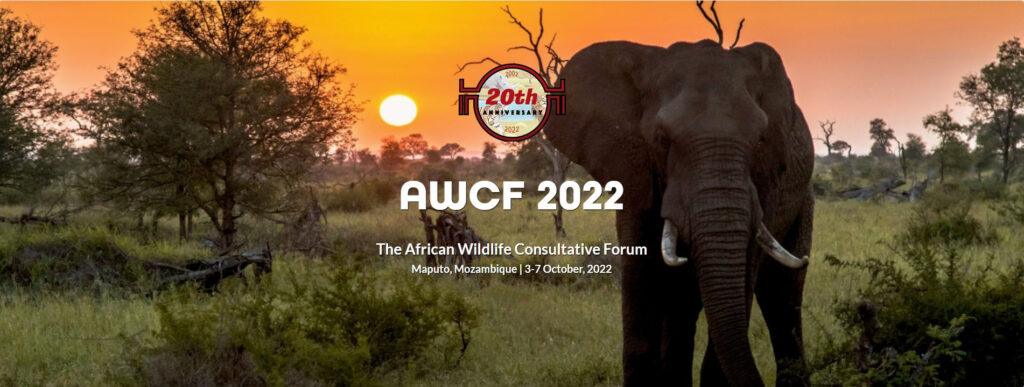Community Potential in Mozambique, AWCF Host Country 2022
By: Claire Fortenberry

SCI Foundation’s 20th African Wildlife Consultative Forum (AWCF) will be hosted in Maputo, Mozambique in October. This year’s forum will build on two decades of African leadership, collaboration, and action on international policy priorities for sustainable use wildlife conservation. The agenda will continue recent discussion focused on the threats from trophy import bans; proposals at the upcoming CITES CoP19; role of the private sector in conservation, and community leadership in Africa’s wildlife economy.
Mozambique boasts a diverse landscape with beautiful beaches along the Indian Ocean, the wild Niassa Reserve to the north, and topography fed by the great Zambezi, Savé, and Limpopo Rivers. This habitat can support an array of wildlife and has recently seen the reintroduction of hyena in Gorongosa National Park, cheetah in the Maputo Special Reserve, and white rhinos in Zinave National Park, to name just a few re-wilding successes. Hunting operators have also helped bring back game in many of the country’s Coutada areas.
This wildlife potential presents Mozambique the chance to develop a robust wildlife economy connected with southern Africa. Safari hunting, photographic, and other tourism activities play a substantial role in rural areas, so Mozambique has the opportunity to develop a national structure for community benefits or land management in Mozambique. As both wildlife and human populations continue to grow, increasing human-wildlife conflict is inevitable. With community-based management of wildlife and natural resources, conflict mitigation can be funded, and conservation would be incentivized through sustainable use.
SCI and SCI Foundation look forward to bringing this discussion of hunting, conservation, and community sustainable use to Mozambique where we are working closely with our hosts at ANAC, the National Administration of Conservation Areas. ANAC has worked in recent years to build healthy wildlife populations and managed areas, representing 25% of the country. ANAC has led several national and community projects, and is currently working with the Mozambique Wildlife Alliance on elephant monitoring and conflict mitigation.
With these structures in place, Mozambique’s rural communities are closer to the opportunity to develop a sustainable wildlife economy in partnership with the private sector and with support from government. An integrated wildlife economy presents the best possible outcome for African communities, their wildlife, and conservation development goals.
For more information on the benefits of international tourist hunting, please visit https://safariclub.org/international-hunting-africa/

